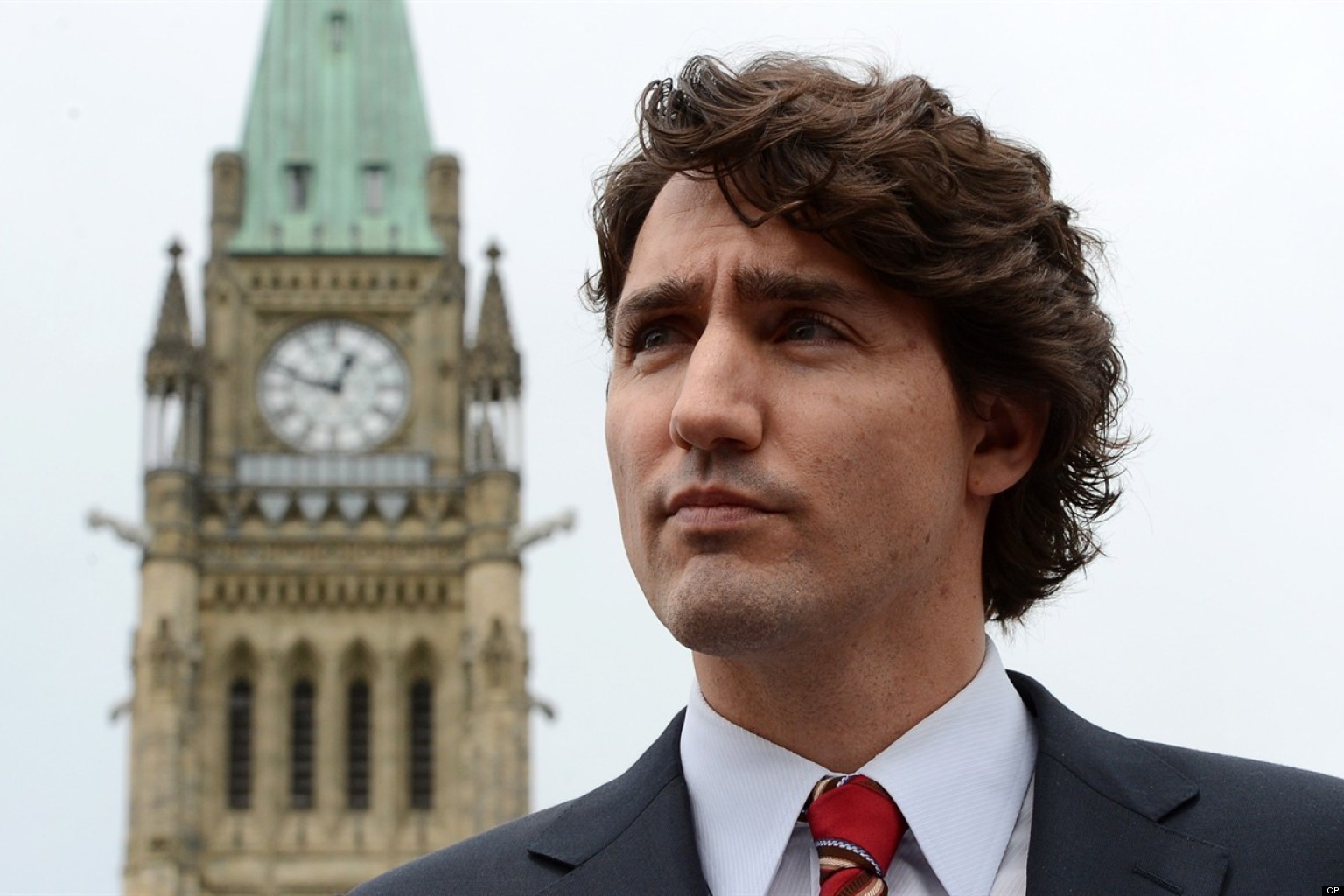Justin Trudeau has been leader of the federal Liberal party for one year.
How is he doing?
Somewhat better, I think, than most people had anticipated. Although he has not taken the country by storm, neither has he wilted in the glare of public and party expectations. Like all politicians, he has made minor mistakes, but he has demonstrated the quickness of foot to acknowledge his errors, to apologize, to correct course and to carry on. The public has been forgiving.
After one year, he has raised his battered party from third place to first in the polls. Pollsters project he would become prime minister at the head of a minority Liberal government, if an election were held today (which, of course, it won’t be). Based on today’s numbers, LISPOP (Laurier Institute for the Study of Public Opinion and Policy) projects a wafer-thin margin: 127 Liberal seats, 120 Conservative and 81 New Democrat.
Time will tell. What has impressed the political community for many months is the durability of the Liberal revival. It has gone long past the honeymoon phase. Eric Grénier, the poll aggregator and an analyst at ThreeHundredEight.com, puts Liberal popular support at 36 per cent. That’s not terrific, but it’s eight points higher than Stephen Harper’s Conservatives, who remain mired at 28 points.
In an article for the Globe and Mail, Grénier reports that the Liberals have consistently led in the national polls for the past 12 months. “The Liberals are up five points on where they stood a year ago, eight points on where they were in the month before naming their new leader, and 14 points compared to the support the Liberals enjoyed in September 2012, just before Mr. Trudeau announced his intentions to run for the leadership,” Grénier writes.
The Liberals have a huge lead in Atlantic Canada, have moved ahead of the NDP in Quebec and stand at 40 per cent in battleground Ontario, up 13 points from their pre-Trudeau level. They have gained ground, but still trail the Tories in the West.
Not all of this improvement is Trudeau’s doing, of course. In Canada, as in other democracies, opposition parties seldom win elections; they become the beneficiaries when governments defeat themselves. That certainly what happened in 2004-2006 when the Liberals defeated themselves over the Sponsorship scandal, bringing Harper’s Conservatives to power.
But Trudeau seems to wear well. He is no longer seen as a kid with a good name and a slender resume. He has established himself as a serious politician. He is also a genuinely likeable politician, and likeability is a significant asset in politics. Bill Davis and Peter Lougheed had it. So did Jean Chrétien in the early years. NDP leader Thomas Mulcair comes across too hard-edged to be truly likeable. And likeability is simply not part of Stephen Harper political wiring.
Ask yourself, if you were inviting a national leader over for a beer and a burger in your backyard, who would you ask? You would choose someone who is interesting and fun. Harper? No way. Mulcair? Probably not. Elizabeth May? Yeah, maybe. Trudeau? For sure. That likeability is reflected in renewed Liberal popularity, especially among young voters and female voters.
Eric Grénier notes that the Liberals’ year-long lead in the polls is the longest stretch that the Harper government has trailed in second since their election in 2006. “The last time a majority government trailed in the polls for as long as the Conservatives have was in the last years of Brian Mulroney’s tenure,” Grénier observes. That was back in 1992-93. Mulroney hung on. Kim Campbell eventually replaced him. And the mighty Tories won just two seats in the 1993 election.
No one is predicting obliteration on that scale for Harper’s Tories. But the question on Ottawa lips (it has passed the sotto voce stage) is: will Harper stay on if he is not pretty darned sure he will retain his majority? The smart money says No.
Cambridge resident Geoffrey Stevens, an author and former Ottawa columnist and managing editor of the Globe and Mail, teaches political science at Wilfrid Laurier University and the University of Guelph. His column appears weekly in Waterloo Region Record and Guelph Mercury. He welcomes comments at geoffstevens[at]sympatico.ca.




